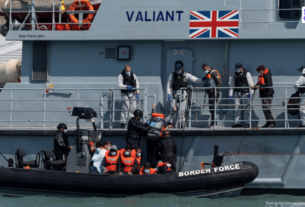Australian Prime Minister Anthony Albanese has confirmed that his first official overseas visit since re-election will be to Indonesia, reaffirming Canberra’s strategic focus on Asia-Pacific diplomacy. The high-stakes meeting with Indonesian President Prabowo Subianto is set for May 14, with economic and security cooperation topping the agenda.
Albanese emphasized the deepening importance of Australia’s relationship with Indonesia, pointing to the Southeast Asian giant’s expected ascent to become the world’s fourth-largest economy. “Indonesia is central to our future,” he said, calling the bilateral ties “foundational to regional stability and prosperity.”
The visit marks a continuation of a long-standing tradition where Australian leaders prioritize engagement with Asia early in their terms, symbolizing Australia’s enduring commitment to its regional neighbors.
Key topics will include trade expansion, defense collaboration, climate partnerships, and regional security architecture, especially in light of rising tensions in the South China Sea and growing influence from Beijing.
Albanese, fresh off an electoral mandate, is expected to propose deeper defense ties, including joint military exercises and cybersecurity cooperation, as part of a broader Indo-Pacific security strategy.
For Indonesia, the visit offers a chance to showcase its emerging global influence under President Prabowo, who recently assumed office with a focus on economic growth, infrastructure modernization, and regional leadership.
Diplomatic analysts see the visit as a critical opportunity to reset and elevate the Australia-Indonesia relationship, particularly after years of intermittent friction over issues like asylum policies, trade disputes, and military intelligence leaks.
No formal agreements have yet been announced, but both governments have signaled a strong desire for mutual investment, clean energy collaboration, and stability in maritime borders and supply chains.
The upcoming talks are expected to signal a new era of economic and strategic alignment between the two regional powers, drawing attention from allies in Washington, Tokyo, and beyond.




